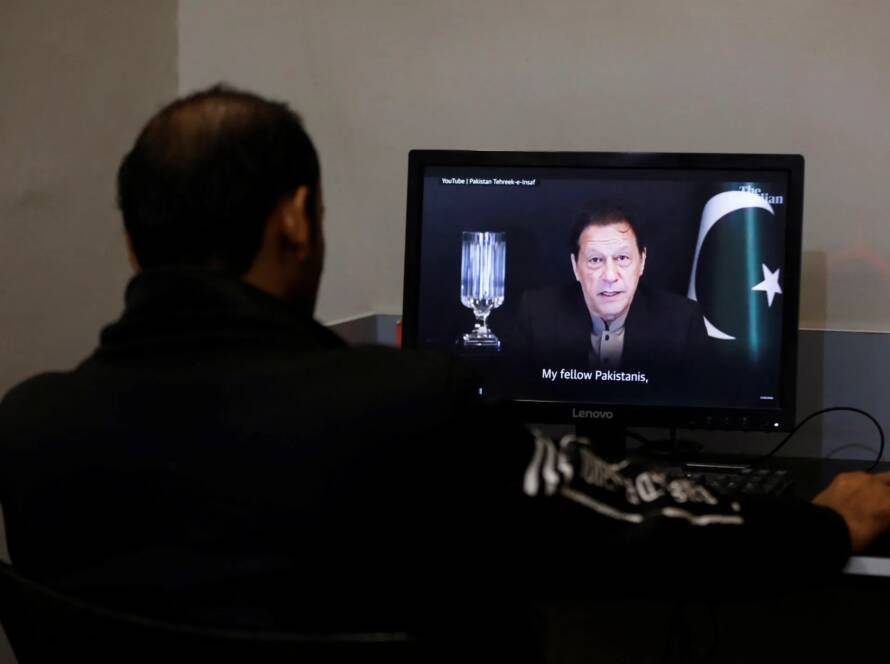By Aavin Abeydeera
In September this year, Canadian Prime Minister Justin Trudeau addressed the Canadian House of Commons. His speech included statements that went on to spark one of the most consequential diplomatic crises in the world today.
Trudeau essentially accused Indian intelligence of being behind the assassination of one Hardeep Singh Nijjar, a Canadian Sikh who had been up until his death a lobbyist for the creation for Khalistan, a separate State for the Sikh community in India.
Furthermore, Trudeau stated that his accusations were backed up by “credible intelligence” shared by Washington. Naturally, the Indian government has fiercely defended itself and denied these accusations. As a result, relations between India and Canada, and by extension, relations between India, the United States, and the West have deteriorated.
Here are the stakes. In essence, India is the one Asian ally that no country in the West wants to anger. Why? India is a rising global power, and naturally, the West looks on India to take on the responsibility of rivalling China, Asia’s current pre-eminent power. India’s nascent alliance towards the West benefits NATO and its ilk in the form of giving power presence in the Indo-Pacific, while it gives India credence and credibility as a trusted world power.
Not only has Canada’s latest misstep jeopardized Indo-Canadian relations, but it has also jeopardized this delicate alliance between India and the West as a whole. Canada may or may not have credible information to back their claims, but accusing a global power of such a crime has been a blunder by every stretch of the imagination.
The fact that Canada has implicitly hosted a separatist terrorist organization, even though it has not been proscribed as such, gives India further credence. Even if India had conducted a clandestine operation on foreign soil to eliminate threats, it would have done so in the interest of its sovereignty- something that Western powers have done so with impunity.
In any case, India has been heavy-handed in its response. Indian foreign policy has always been tinged by limitless national pride, and any affront made to the State has always been met with the most dramatic of measures. News circuits have picked up the story in a bid to accuse Western powers of throwing its weight around, while Modi’s government has taken the opportunity to give off an air of strength and aggression.
In that same vein, the Indian Foreign Ministry has given warnings to its citizens about travelling to Canada and has cancelled Canadian visa applications to India. Normally, this would be preposterous, as Canada is generally one of the safest nations to travel to or live in. But separatist Sikh groups in Canada have repeatedly made threats to Canadian Hindus, so India’s travel warning is not without reason. After all, Canada’s track record in dealing with security threats to other nations has been poor.
The Air India disaster, perpetrated by the Sikh separatist group Babbar Khalsa based out of Canada, stands as evidence to this fact. Killing all 329 people abroad, the disaster stands to this day as one of the most devastating examples of aviation terrorism.
That the Canadian government has continued its policy of tolerating Indian separatist movements who have been known to commit acts of terrorism is puzzling. What is more puzzling is why the Canadian government chose to antagonize a sovereign nation over the killing of a separatist who had been actively trying to destabilize that nation.
On the one hand, Nijjar was a legitimate Canadian citizen, and if Indian intelligence IS to be blamed, one could argue there is a rational reason for Canada accusing Indian intelligence of being behind the murder of a Canadian citizen, on Canadian soil, where neither the Indian government nor the Indian intelligence community has power.
On the other hand, even if Indian forces were behind the assassination, most in the international community would be puzzled as to why Canada is outraged. Nijjar was a known instigator of Khalistani sentiments, and being a close ally and partner of India, Canada would probably do well to “sweep it under the rug.”
At the moment, what it looks like, regardless of the reality of the situation, is that Canada has harbored known foreign separatist communities within its borders and is now outraged that a sovereign state has taken steps to ensure its sovereignty. Any which way you look at it, Canada seems to be painted in the light of the villain.
Then again, Cananda, and the West in general, is no stranger to harboring those with separatist sentiments. Communities with pro-separatist sentiments can still be found in large cities such as Toronto, Vancouver, and Ottawa.
Most Western nations willingly host such separatist claims, much of them stemming from Asia and Africa. While any separatist sentiments in the West will aptly be named terrorism or belligerent threats to the sovereignty of a State, it is telling that the West sees separatists in Asia and Africa as “freedom fighters.”
Perhaps this is why many South Asian nations, chief among them Sri Lanka, have joined in a rare show of solidarity with India. While Pakistan has joined the anti-India camp, the rest of the region supports India’s outrage. Part of this show of support is pluralistic: it is a show of South Asian strength, and regional cooperation. After all, Sri Lanka knows only too well how the West tolerated a terrorist organization under the guise of a “rightful cause.”
On the other hand, it is a pragmatic move. Sri Lanka is no stranger to separatism, and knowing the dangers such an idea brings, it would rather have a solid India in its regional backyard. After all, if such a rocksteady state can fracture, there is nothing to indicate that a fragile state in the middle of reconciliation cannot either.
Furthermore, as Sri Lanka recovers from the economic crisis of 2022, it would do well for them to cozy up to a rising India. Sri Lanka’s explicit support for India would ensure that their support for India will be paid in kind.
Whatever may happen, the West has made a serious misstep in its Indo-Pacific strategy, by antagonizing their most valuable ally in the region. What this means for alliances like QUAD is uncertain. But Chinese mouthpieces trolling the West over their blunder portends a possible weakening of those alliances. For now, though, Trudeau will ruminate on his words, wondering if he has laid waste to one of the most important partnerships that Canada, and the West in general, has, and will have.
Aavin Abeydeera is a student at the Bandaranaike Center for International Studies (BCIS). He is interested in learning and writing about the world and how it operates. His interests range from geopolitics, economics, and foreign policy to culture and sports.
Factum is an Asia Pacific-focused think tank on International Relations, Tech Cooperation, and Strategic Communications accessible via www.factum.lk.
The views expressed here are the author’s own and do not necessarily reflect the organization’s.


